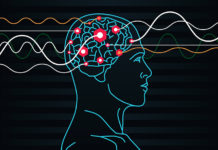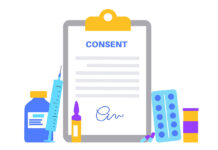Confessions of an Advertising Writer: How I Helped Pharma Sell Antidepressants
As a former pharmaceutical ad writer, I not only witnessed the explosive growth in antidepressant drugs, I contributed to it.
Hegemonic Sanity and Suicide
The “good” suicide attempt survivor wakes up in a hospital bed bathed in beautiful natural light, surrounded by the people who love them most, and they realize that their thinking was flawed and all those unsolvable problems can actually be solved if they are just compliant with medication and therapy. And then there's the “bad” suicide attempter who is angry that they lived, who challenges the status quo.
In Memoriam: Matt Stevenson
MIA blogger Matt Stevenson, who was best known to the MIA community for his frequent—and insightful—comments on MIA posts, died last Thursday. He took his own life, at age 32. His last message was this: Don't let a psychiatric diagnosis rob you of your hope.
The New DSM Is Coming and That Isn’t Good News
Binge Eating Disorder is one of many invalid diagnoses we’ll continue to receive as a result of the APA’s failure to correct the mistakes of past versions of the DSM.
Usage of Depression Pills in Children and Young People Must Stop
Our citizens would be far better off if we removed all the psychotropic drugs from the market, as doctors are unable to handle them.
Mad in the UK
Mad in the UK describes its mission as “Fundamentally re-thinking UK mental health practice and promoting positive change.”
Victim Blaming: Childhood Trauma, Mental Illness & Diagnostic Distractions?
Why, despite the fact that the vast majority of people diagnosed with a mental illness have suffered from some form of childhood trauma, is it still so difficult to talk about? Why, despite the enormous amount of research about the impact of trauma on the brain and subsequent effect on behaviour, does there seem to be such an extraordinary refusal for the implication of this research to change attitudes towards those who are mentally ill? Why, when our program and others like it have shown people can heal from the effects of trauma, are so many people left with the self-blame and the feeling they will never get better that my colleague writes about below?
Intentional Peer Support: Creating Relationships, Creating Change
IPS is about creating a power-balanced, relational context in which we can begin to explore and even challenge the stories we have been taught. We can name our experiences, and challenge the meaning that we have constructed around those experiences. This fundamentally alters what we think of as “help,” but also challenges social and political constructs of disability.
The Creativity and Suicide of Robin Williams: A Phenomenological Study
My purpose in writing this case study is not to suggest that creativity is a mere byproduct of trauma, or to deny the role of so-called mental illness in suicide, but to situate these phenomena within the context of human lives. To render them humanly (rather than medically) intelligible. With his mind and body disintegrating, Robin Williams took his life to thwart the eradication of self.
Jung’s First Dream, The Mad God Dionysus and a Madness Sanctuary called Diabasis
With a loud piercing cry, the bare chested Native American warrior hurled his tomahawk at John Weir Perry with full force. John told me...
Part 4: Neurodiversity: New Paradigm, or Trojan Horse?
Promoters of "neurodiversity" replace existing forms of oppression with new "neuro" versions that still decontextualise our struggles.
School Phone Bans and “Mental Health”
Banning school phones is not an answer to improving mental health.
Exploding the “Separated-at-Birth” Twin Study Myth
Supporters of the nature (genetic) side of the “nature versus nurture” debate often cite studies of “reared-apart” or “separated” MZ twin pairs (identical, monozygotic) in support of their positions. In this article I present evidence that, in fact, most studied pairs of this type do not qualify as reared-apart or separated twins.
Everyone’s Afraid of an Angry Woman: Honoring Sinéad O’Connor
In her tragic passing, I choose to honor her by raising up these words she said, by hearing and believing them.
Neurofeedback is Not For Everyone: The Dangers of Neurology
One thing I noticed, from the moment that I stepped out of my psychiatrist’s office, was how strangely blank and yet clear my mind was. I felt surprisingly calm and relaxed, and I decided to go back for another treatment the next week. What I couldn’t have known then was that after that next “treatment,” life would be completely destroyed for me.
Escaping the Hell of Protracted Withdrawal Syndrome
I painfully and gradually learned to function with my dysfunctions. Over time, I noticed genuine improvement.
The Scientism of Attention Deficit Hyperactivity Disorder (ADHD)
Calling ADHD a diagnosis, i.e., something with the capacity to explain the behaviours that it describes, is like saying the headache is causing the pain in my head or the inattention is caused by inattention. Scientism has turned ADHD from a vague, difficult to pin down concept into a fact of culture masquerading as a fact of nature.
Reflections on the Silicon Valley Teen Suicides-by-Train: Fifteen Years Later
A psychiatrist and mom reflects on teen suicide clusters in Palo Alto and discusses alternative ways to address adolescent mental health.
Antidepressants Increase the Risk of Suicide and Violence at All Ages
Although the drug industry, our drug regulators and leading psychiatrists have done what they could to obscure these facts, it can no longer be doubted that antidepressants are dangerous and can cause suicide and homicide at any age.
Going Deeper into “Madness”: ISPS 2015’s International Dialogue
As awareness spreads about there being something wrong with existing approaches to “psychosis” aka “madness.” Interest grows in exploring what to do instead. One meeting place for exploring this question of “what to do” will be the ISPS conference in NYC in March 2015, which is titled “An International Dialogue on Relationship and Experience in Psychosis.” This conference promises to stand out in terms of the variety of voices, perspectives, approaches and traditions that it will bring together to focus on the deeper issue of how helpers can best understand and interact with those experiencing what is called psychosis.
Helping Children With Angry Outbursts
Finnish psychiatrist Ben Furman reviews various non-drug therapies for children with aggressive outbursts of anger, including the Kids' Skills approach that he and social psychologist Tapani Ahola developed. These approaches focus on helping children come up with their own ideas for overcoming their problems with the help of family and friends.
Three Suicides: Honoring Lives Lost to Benzodiazepines
I am still trying to reconcile what these chemicals are capable of, how the urge can morph into an action, how we maybe just don’t understand suicide all that well. For me, the suffering was so intense it was too painful to stay alive. I understand how my friends felt in their last moments.
My Sister Lucy’s Death and Life: Picturing an Alternate Timeline of Recovery
I’ll never forget standing beside my sister Lucy as she was strapped to a gurney during a midnight admission to an E.R. in Cambridge, Mass.
What Does Consent Mean in Practice? A Lived Experience Perspective
Every time I agreed to 'treatment’, I was told that it was necessary to save my life. I was sold a bunch of lies.
Observational Studies Confirm Trial Results That Antidepressants Double Suicides
Depression drugs don’t work, and they increase suicide.































